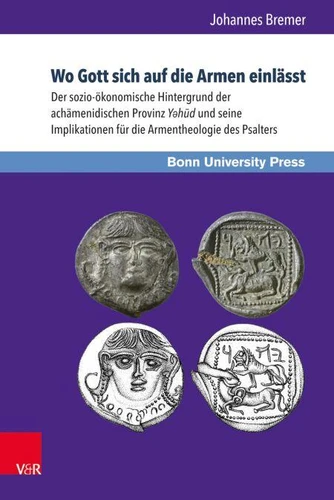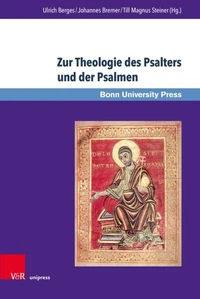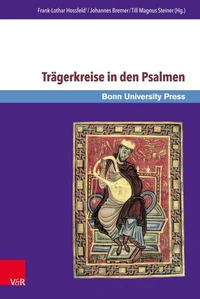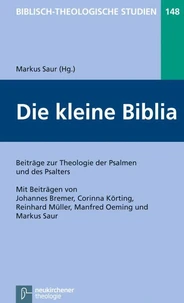Wo Gott sich auf die Armen einlässt. Der sozio - ökonomische Hintergrund der achämenidischen Provinz Yehud und seine Implikationen für die Armentheologie des Psalters
Par :Formats :
Disponible dans votre compte client Decitre ou Furet du Nord dès validation de votre commande. Le format PDF est :
- Compatible avec une lecture sur My Vivlio (smartphone, tablette, ordinateur)
- Compatible avec une lecture sur liseuses Vivlio
- Pour les liseuses autres que Vivlio, vous devez utiliser le logiciel Adobe Digital Edition. Non compatible avec la lecture sur les liseuses Kindle, Remarkable et Sony
 , qui est-ce ?
, qui est-ce ?Notre partenaire de plateforme de lecture numérique où vous retrouverez l'ensemble de vos ebooks gratuitement
Pour en savoir plus sur nos ebooks, consultez notre aide en ligne ici
- Nombre de pages519
- FormatPDF
- ISBN978-3-8470-0329-8
- EAN9783847003298
- Date de parution18/04/2016
- Protection num.pas de protection
- Taille6 Mo
- Infos supplémentairespdf
- ÉditeurV&R Unipress
Résumé
One of the major lines, running to the Psalter as a whole, is the theology of the poor. More than every fourth psalm is dealing with the poor or forms of poverty. The discussion about a social background or a metaphorical meaning of poverty shows the lack of knowledge about the economic and social circumstances during Achaemenid period Yehud (538-332 B. C. E.) as a formative phase of the Psalter´s redaction and compilation process.
Before this background the author points out the (1) biblical, (2), archaeological and (3) numismatic evidence of Achaemenid Yehud. He concludes an escalation of socio-economic poverty, with three different stages during the Achaemenid reign. These stages find their reflection in the theology of the poor in the Psalter, where we can find dynamics as well within the five books of the Psalter, as in the Psalter as a whole.
The meaning of poverty in Old Testament texts might become metaphorical, but have their roots in the economic and social backgrounds, as the author shows.
Before this background the author points out the (1) biblical, (2), archaeological and (3) numismatic evidence of Achaemenid Yehud. He concludes an escalation of socio-economic poverty, with three different stages during the Achaemenid reign. These stages find their reflection in the theology of the poor in the Psalter, where we can find dynamics as well within the five books of the Psalter, as in the Psalter as a whole.
The meaning of poverty in Old Testament texts might become metaphorical, but have their roots in the economic and social backgrounds, as the author shows.
One of the major lines, running to the Psalter as a whole, is the theology of the poor. More than every fourth psalm is dealing with the poor or forms of poverty. The discussion about a social background or a metaphorical meaning of poverty shows the lack of knowledge about the economic and social circumstances during Achaemenid period Yehud (538-332 B. C. E.) as a formative phase of the Psalter´s redaction and compilation process.
Before this background the author points out the (1) biblical, (2), archaeological and (3) numismatic evidence of Achaemenid Yehud. He concludes an escalation of socio-economic poverty, with three different stages during the Achaemenid reign. These stages find their reflection in the theology of the poor in the Psalter, where we can find dynamics as well within the five books of the Psalter, as in the Psalter as a whole.
The meaning of poverty in Old Testament texts might become metaphorical, but have their roots in the economic and social backgrounds, as the author shows.
Before this background the author points out the (1) biblical, (2), archaeological and (3) numismatic evidence of Achaemenid Yehud. He concludes an escalation of socio-economic poverty, with three different stages during the Achaemenid reign. These stages find their reflection in the theology of the poor in the Psalter, where we can find dynamics as well within the five books of the Psalter, as in the Psalter as a whole.
The meaning of poverty in Old Testament texts might become metaphorical, but have their roots in the economic and social backgrounds, as the author shows.






